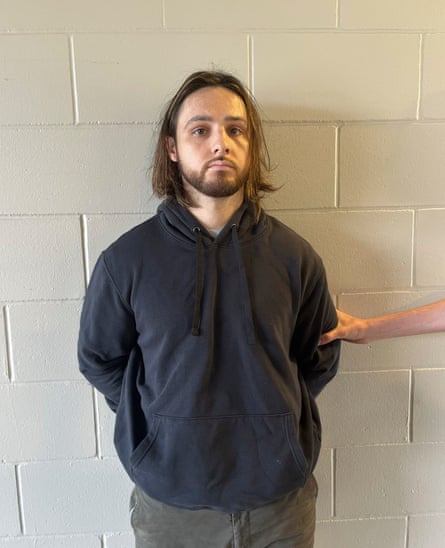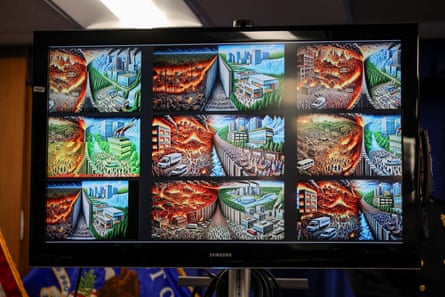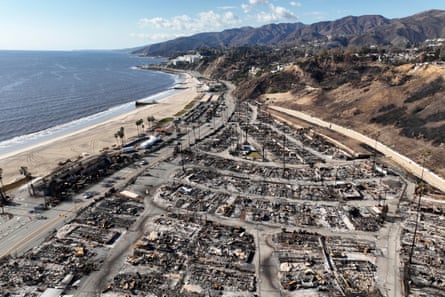Developer Offer
Try ImaginePro API with 50 Free Credits
Build and ship AI-powered visuals with Midjourney, Flux, and more — free credits refresh every month.
Arson Suspect Used AI to Visualize Destructive Fire Fantasies
A Devastating Blaze from a Single Spark
On New Year's Day, just after midnight, 29-year-old Uber driver Jonathan Rinderknecht allegedly started a small fire that would escalate into the most destructive wildfire in the history of Los Angeles. Nearly ten months later, his arrest has brought a sense of closure to the Pacific Palisades community, revealing a disturbing portrait of a man obsessed with fire.
According to federal investigators, Rinderknecht appeared “agitated and angry” after his driving shift. He parked near a trailhead in Topanga state park and, while listening to a French rap song with a video featuring burning objects, allegedly used a lighter to set dry vegetation ablaze. Firefighters initially believed they had extinguished this small blaze, known as the Lachman fire. However, it smoldered underground for a week before reigniting with the help of powerful winds, transforming into the catastrophic Palisades fire.
The inferno ultimately scorched over 23,000 acres, tragically claimed 12 lives, destroyed more than 6,800 structures, and resulted in billions of dollars in damages.

The Suspect's Unusual Behavior
Authorities noted that Rinderknecht’s actions at the scene were highly suspicious. After calling 911 to report the fire, he returned to the area, followed firefighters, and began filming their response. The criminal complaint highlights this, stating, “Arsonists sometimes like to watch firefighters respond to the fires that they have set.” He even offered to help fight the very fire he allegedly started, a behavior described as “highly unusual conduct.”
Prosecutors also detailed how Rinderknecht attempted to mislead authorities. He reportedly lied to the 911 operator about his location, claiming to be at the base of the trail when geolocation data from his phone placed him just 30 feet from the flames.
A Disturbing Digital Trail Emerges
The investigation into Rinderknecht uncovered a trove of digital evidence that painted a grim picture of his mindset. Months before the fire, he used ChatGPT to create images and prompts centered on fire and destruction. One particularly chilling request was for a dystopian scene of a burning city, with people fleeing in terror.
He also prompted the AI to depict a scene of societal collapse and class division, describing a massive gate with a “big dollar sign.” In his prompt, he wrote, “On the other side of the gate and the entire wall is a conglomerate of the richest people. They are chilling, watching the world burn down, and watching the people struggle. They are laughing, enjoying themselves, and dancing.”

Confessions to a Chatbot
Rinderknecht didn't just use the AI for image generation; he used it as a confidant for his pyromaniacal thoughts. He typed into the chatbot that he had burned a Bible, writing, “It felt amazing. I felt so liberated.” He sent a similar message to a family member. In another conversation, he asked ChatGPT, “Are you at fault if a fire is lift because of your cigarettes,” misspelling “lit.” The AI reportedly responded with “Yes” and an explanation of liability.
Arrest and Legal Proceedings
After relocating to Florida, Rinderknecht was arrested and charged with destruction of property by means of fire. The crime carries a mandatory minimum sentence of five years and a maximum of 20 years in prison. Acting US attorney Bill Essayli described the tragedy as the result of “a single person’s recklessness.”

In court, prosecutors argued that Rinderknecht was a flight risk due to family ties in France. His own relatives in Florida expressed fear for their safety, citing his deteriorating mental state and their efforts to evict him. A federal magistrate ordered him to remain in custody pending a full hearing.
A Community in Recovery
The arrest provides some answers for the residents of Pacific Palisades, but the scars of the fire remain. The area is still rebuilding after a lengthy cleanup of charred remains. In response to the devastation, California Governor Gavin Newsom announced a package of bills to aid in the recovery. “While it’s been nine months since these firestorms struck Los Angeles, the destruction and devastation left behind is still fresh for thousands of survivors,” Newsom stated, emphasizing the need for continued support.
Compare Plans & Pricing
Find the plan that matches your workload and unlock full access to ImaginePro.
| Plan | Price | Highlights |
|---|---|---|
| Standard | $8 / month |
|
| Premium | $20 / month |
|
Need custom terms? Talk to us to tailor credits, rate limits, or deployment options.
View All Pricing Details

